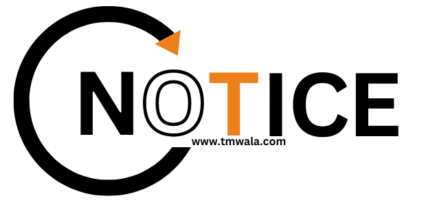Introduction
In the world of intellectual property, protecting trademark rights is essential to maintaining brand reputation and preventing unauthorized use. One of the proactive measures that a trademark owner can take to safeguard their rights is issuing a trademark caution notice. This blog provides a detailed guide on trademark caution notices in India, covering their purpose, preparation, legal framework, and frequently asked questions (FAQs).
What is a Trademark Caution Notice?
A trademark caution notice is a formal declaration published in newspapers or other media to alert the public about the ownership of a trademark and to deter unauthorized use. It serves as a preventive measure to inform potential infringers of the trademark owner’s rights and to warn them of possible legal consequences for infringement.
Purpose of a Trademark Caution Notice
- Prevent Infringement: By notifying the public about the trademark owner’s rights, a caution notice helps prevent unauthorized use of the trademark.
- Reinforce Ownership: It reinforces the trademark owner’s claim over the mark and establishes the mark’s reputation.
- Legal Evidence: Serves as evidence of the trademark owner’s proactive efforts to protect their rights in case of future disputes.
Key Components of a Trademark Caution Notice
- Identification of Trademark Owner: Name, address, and contact details of the trademark owner or their legal representative.
- Description of the Trademark: Details about the trademark, including its name, logo, registration number, and the classes of goods or services it covers.
- Statement of Ownership: A declaration of ownership and exclusive rights over the trademark.
- Warning of Legal Consequences: A warning to unauthorized users about potential legal action for infringement.
- Publication Details: Information about where the notice will be published, such as newspapers or online platforms.
Process of Issuing a Trademark Caution Notice
Preparation
- Consult Legal Counsel: Seek advice from a trademark attorney to draft an effective caution notice.
- Gather Information: Collect details about the trademark, including registration documents and evidence of use.
Drafting the Notice
- Clear and Precise Language: Use clear language to describe the trademark and the rights associated with it.
- Include All Key Components: Ensure that all necessary details, such as the trademark owner’s information and legal warnings, are included.
Publication
- Choose Media: Select appropriate media for publication, such as national or regional newspapers, trade journals, or online platforms.
- Publish the Notice: Ensure that the notice is published as per the chosen medium’s requirements.
Documentation
- Obtain Proof of Publication: Keep copies of the publication and any related documents as proof of the notice’s issuance.
- Maintain Records: Maintain records of all communications and publications related to the caution notice.
Legal Framework for Trademark Caution Notices in India
In India, the issuance of a trademark caution notice is governed by various legal provisions related to trademark protection and enforcement. While the Trade Marks Act, 1999, does not specifically mention caution notices, they are a recognized practice for safeguarding trademark rights.
Relevant Sections of the Trade Marks Act, 1999
Provides the process for applying for trademark registration, which is the foundation for enforcing trademark rights.
Defines what constitutes trademark infringement and the legal grounds for taking action against unauthorized use.
Outlines the types of relief that can be sought in cases of trademark infringement, including injunctions and damages.
Advantages of Issuing a Trademark Caution Notice
- Deterrent Effect: A caution notice can deter potential infringers from using the trademark, reducing the risk of unauthorized use.
- Legal Protection: It strengthens the trademark owner’s position by demonstrating their proactive efforts to protect their rights.
- Public Awareness: Increases public awareness of the trademark, reinforcing its distinctiveness and reputation.
Disadvantages and Limitations
- Costs: Publishing a caution notice can be costly, especially if done in multiple media.
- Limited Effectiveness: While it serves as a deterrent, it may not prevent all instances of infringement or address complex disputes.
- No Immediate Legal Remedy: A caution notice alone does not provide immediate legal remedies but is a preventive measure.
Conclusion
A trademark caution notice is a valuable tool for proactively protecting trademark rights and preventing unauthorized use. By understanding its purpose, preparation process, and legal framework, trademark owners can effectively safeguard their brands and maintain their market position. Issuing a caution notice demonstrates a commitment to enforcing trademark rights and can serve as an important deterrent against potential infringers. For best results, trademark owners should consult legal professionals to ensure that their caution notices are properly drafted and published, and to address any subsequent legal issues that may arise.
FAQs on Trademark Caution Notices
1. What is the difference between a trademark caution notice and a cease and desist notice?
A trademark caution notice is a public declaration to prevent infringement and inform the public of trademark ownership, while a cease and desist notice is a formal demand sent to an infringer to stop their unauthorized use of the trademark.
2. Is a trademark caution notice legally required?
No, issuing a trademark caution notice is not legally required but is a recommended practice for protecting trademark rights and preventing unauthorized use.
3. How often should a trademark caution notice be issued?
There is no fixed frequency. Issuing a caution notice when significant infringement risks arise or periodically to reinforce trademark rights can be beneficial.
4. Where should a trademark caution notice be published?
A caution notice should be published in widely circulated newspapers, trade journals, or online platforms relevant to the trademark’s market. The choice of media depends on the trademark’s visibility and the target audience.
5. Can a trademark caution notice be published online?
Yes, publishing a caution notice online is an effective way to reach a broad audience, especially if the trademark is used in digital or e-commerce platforms.
6. What should be included in the trademark caution notice?
Include details of the trademark owner, a description of the trademark, the statement of ownership, warning of legal consequences for infringement, and publication details.
7. How long does it take to publish a trademark caution notice?
The time required for publication depends on the chosen media. Newspapers may take a few days to a week, while online platforms can provide faster publication.
8. What evidence should be kept after publishing a trademark caution notice?
Keep copies of the publication, proof of delivery, and any related correspondence as evidence of the notice’s issuance.
9. Can a trademark caution notice prevent all forms of infringement?
While a caution notice can deter potential infringers and reinforce trademark rights, it may not prevent all instances of infringement or address complex legal disputes.
10. What steps should be taken if an infringement occurs despite the caution notice?
If infringement occurs, consider taking legal action, such as sending a cease and desist notice or filing a lawsuit for trademark infringement.















